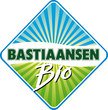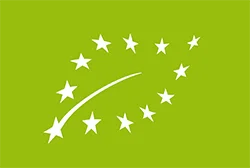Hersteller: Bastiaansen Bio
NL-5124 RW Molenschot
Holland
mrk: 2089

Vandersterre Holland B.V.
NL 2411 NT Bodegraven
Bastiaansen ist einer der Bio-Pioniere Hollands mit fast 30-jähriger Erfahrung in der Entwicklung und Herstellung biologischer Käse-Spezialitäten. Ehrlichkeit, Qualität und Umweltbewusstsein sind bis auf den heutigen Tag wesentliche Bestandteile der Unternehmensphilosophie. Die Pflege traditioneller holländischer Käsekultur, die Erhaltung einer natürlichen Umwelt, verbunden mit moderner, ökologisch ausgerichteter Technologie, effizienter Qualitätskontrolle, innovativer Produktpolitik, professionellem Marketing – das sind die Leitmotive. Die Bio Kaas B.V., Inhaberin der Marke Bastiaansen, ist ein modernes Unternehmen, das zu den bedeutendsten Bio-Käse-Herstellern Europas zählt.
www.bastiaansen-bio.com
(Daten von Ecoinform)
Bastiaansen Weidevogel-Käse (Gouda pikant)
The number of grazing birds raising their young in the Netherlands has been in sharp decline for years. To draw attention to the grazing bird problem, Bio Bastiaansen Käse has developed the Bio Bastiaansen grazing bird cheese in collaboration with the Dutch Bird Protection Association. The milk for this cheese comes from three organic farmers who cultivate their land in accordance with the guidelines for the protection of grazing birds. They make part of their land available to grazing birds for nesting and rearing their young. They receive compensation for this sustainable bird protection, which comes from the sale of the cheese, and one of these farmers, Farmer Henk, has always been interested in the various grazing birds. "When we took over the farm, we only had a few birds' nests in our meadows, so of course you take that into consideration." Henk is now all the more passionate about being a 'pasture bird breeder' and improving the bird population again. Henk's top priority: what more can be done to protect grazing birds? "We are considering the grazing birds and their nests on more and more areas and providing the birds with the best possible habitat.The grazing bird season lasts from mid-March to mid-June. -As the grazing birds have top priority, our cows are only allowed onto areas where grazing birds do not breed before June 15. We have created several ponds on our land, which are created by flooding the land from mid-February to mid-June. There is then about 5 to 20 centimetres of water on the land. The grazing birds use this biotope for foraging, mating, roosting and breeding. A third of our area is herb-rich grassland. We only start mowing when all the grazing birds have fledged, which is usually in mid-June. We fertilize the herb-rich grassland where the birds live exclusively with straw manure. This organic manure is more beneficial for the soil life, resulting in more food for the grazing birds and the lapwing uses the pieces of straw from the manure to build its nest - all these measures result in a beautiful ecological landscape that is full of grazing birds and nests during the breeding season. Most grazing birds only stay on the pastures in the Netherlands for a short time, as they are migratory birds and after the summer they head to southern Spain or South Africa to spend the winter there.
Gekühlt bei 5 - 8 °C lagern
Herstellung in Niederlande
, Niederlande
.
Ursprung/Rohstoffe:
Niederlande
- Herkunft landwirtschaftliche Zutaten
-
EU-Bio
- Herkunftsland
-
Niederlande
- Zertifizierung
-
Deutsches staatliches Bio-Siegel
-
EU Bio-Siegel
- Bio-Kontrollstelle
-
NL-BIO-01
Lebensmittel
- Aufbewahrungs/Verwendungshinweise
-
Im Kühlschrank bei ca. 5 ° C, gut eingepackt oder in einem verschlossenen Gefäß, um Austrocknung zu verhindern.
Hersteller
Vandersterre Holland B.V.
,
Marke Bastiaansen Bio
Zutaten
KUHMILCH*(Weidemilch) pasteurisiert, Natriumchlorid (Kochsalz), Milchsäurebakterien als Starterkultur, Mikrobielles (vegetarisches) Lab
*aus kontrolliert ökologischer Erzeugung
Ernährungshinweise
Vegan
Vegetarisch
Rohkost
Ohne Schweinefleisch
Ohne Rindfleisch
Allergene
- Laut Rezeptur enthalten
-
Milcheiweiss
,
Milch
Käse
Fettstufe:
Rahmstufe (DE)
Reifezeit 4 Monat(e)
, rindengereift
Käsegruppe:
Halbharter Schnittkäse (AT)
Schnittkäse (DE)
Fettgehalt in Trockenmasse: mindestens 50 %
- Labart
-
Mikrobieller Labaustauschstoff
- Rinde
-
Kunststoffüberzug nicht zum Verzehr geeignet
- Salzart
-
Siedesalz
- Tierart
-
Kuh
- Wärmebehandlung
-
mit pasteurisierter Milch hergestellt
- Sensorik/Geschmack
-
charakteristisch
Durchschn. Nährwerte
pro 100 g:
| Energie |
Fett |
gesättigte Fettsäuren |
Kohlenhydrate |
Zucker |
Eiweiss |
Salz |
|
1726 kJ
=
417 kcal
|
35.3g |
25.3g |
0.0g |
0.0g |
24.7g |
1.77g |
Verpackung
Nettofüllmenge:
12.0 Kilogramm (kg)
kein Pfand
(DE)
kein Pfand
(AT)
Last-Update: 7/18/25, 7:48 AM /
Weidevogel pikant / 1d0f4084-ce9d-42f7-a5bf-f58939c2ca68 /
Version: 1

